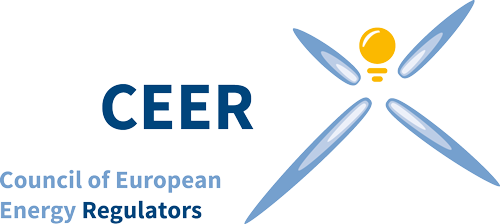ACER
 One of the EU’s decentralised agencies, the European Union Agency for the Cooperation of Energy Regulators (ACER) was established in March 2011 by the Third Energy Package legislation as an independent body to foster the integration and completion of the European Internal Energy Market for electricity and natural gas. Regulation (EU) 2019/942 of the European Parliament and of the Council lays down the legal framework for ACER. Only EU member states can be ACER members. The ERO became part of ACER in 2011. The Seat of ACER is in Ljubljana, Slovenia.
One of the EU’s decentralised agencies, the European Union Agency for the Cooperation of Energy Regulators (ACER) was established in March 2011 by the Third Energy Package legislation as an independent body to foster the integration and completion of the European Internal Energy Market for electricity and natural gas. Regulation (EU) 2019/942 of the European Parliament and of the Council lays down the legal framework for ACER. Only EU member states can be ACER members. The ERO became part of ACER in 2011. The Seat of ACER is in Ljubljana, Slovenia.
OBJECTIVES AND FUNCTIONS
- The Agency complements and coordinates the work of national energy regulators at EU level;
- The Agency works towards the completion of a single and competitive EU energy market for electricity and natural gas;
- Development of EU-wide networks;
- Development of market rules with a view to enhancing competition;
- The Agency coordinates regional and cross-regional initiatives, which favour market integration;
- It monitors the work of the European Networks of Transmission System Operators for gas and electricity (ENTSO-E and ENTSOG); issuing opinions on their EU-wide network development plans;
- The Agency monitors the functioning of gas and electricity markets, emphasising monitoring of wholesale energy trading (REMIT).
By fostering cooperation among National Regulatory Authorities (NRAs), ACER ensures that the integration of national energy markets and the implementation of legislation in the Member States are met according to the EU’s energy policy objectives and regulatory frameworks.
COOPERATION
The ERO plays an active role in ACER’s Board of Regulators (BoR) and in ACER’s Working Groups and Task Forces. In the relevant working groups, the ERO’s specialised units take part in talks on the implementation of network codes and guidelines on trade, on connection to the systems, and on system operation. Gas working groups focus on activities resulting in the implementation of the relevant provisions of the applicable regulations in the national gas market models. Intensive discussions on the course to be followed by the gas industry, which should reflect the requirements for gas use sustainability and for transition to low-carbon technologies, and take into account the development of digital technologies, have also been launched. Information sharing results in the annual Market Monitoring Reports.
CEER
 The Council of European Energy Regulators (CEER) is a voluntary not-for-profit association that brings together European energy regulators. In March 2000, ten national energy regulators signed the Memorandum of Understanding for the establishment of the Council of European Energy Regulators to facilitate cooperation in their common interests for the promotion of the internal electricity and gas market. In order to cope with a growing number of issues and to improve cooperation at the operational level, the regulators decided in 2003 to formally establish themselves as a not-for-profit association under Belgian law and to set up a small secretariat in Brussels.
The Council of European Energy Regulators (CEER) is a voluntary not-for-profit association that brings together European energy regulators. In March 2000, ten national energy regulators signed the Memorandum of Understanding for the establishment of the Council of European Energy Regulators to facilitate cooperation in their common interests for the promotion of the internal electricity and gas market. In order to cope with a growing number of issues and to improve cooperation at the operational level, the regulators decided in 2003 to formally establish themselves as a not-for-profit association under Belgian law and to set up a small secretariat in Brussels.
The overall aim of the Council of European Energy Regulators (CEER) is to facilitate the creation of a single, competitive, efficient and sustainable internal market for gas and electricity in Europe. The CEER acts as a platform for cooperation, information exchange and assistance between Europe’s national energy regulators and is their interface at EU and international level. On EU issues, CEER works very closely with (and supports) ACER. Regulatory authorities based on the European continent can only be CEER members.
OBJECTIVES AND FUNCTIONS
- Encourage best regulatory practices;
- Champion sound and independent regulation in the public interest;
- Put customers and their protection at the heart of energy policy. In the context of consumer protection, CEER and the European Consumer Organisation (BEUC) have renewed their Vision for Energy Consumers with a horizon to 2030;
- Share experience & support NRAs in their daily work, e.g. through training and workshops;
- Promote a competitive, secure and environmentally sustainable internal market;
- Sharing regulatory best practice worldwide through its membership in the International Confederation of Energy Regulators (ICER).
COOPERATION
The cooperation between ERO and CEER primarily includes ERO’s active participation in the meetings of working groups (electricity (EWG), gas (GWG), customers and retail markets (CRM WG), and market integrity and transparency working (MIT WG, i.e. REMIT issues)), which, among other things, produce input materials for developing and amending the EU’s energy legislation. In respect of the protection of consumers and retail markets, CEER aims at helping this most numerous customer segment to find their way around in the liberalised market, primarily as regards energy prices and commodity supply quality.
ERRA

The Energy Regulators Regional Association (ERRA) is a non-profit organisation bringing together members from Europe, Asia, Africa, Middle East, North and South America. ERRA capacity building activities are open to both regulators and non-regulators. Members prepare technical and benchmarking reports, which serve as a key mechanism to spread expertise and best practices among the membership.
OBJECTIVES AND FUNCTIONS
- Strengthening and improving the regulatory framework around the world;
- ERRA fosters and facilitates exchange of data, information and experience among its members;
- Promotes opportunities for capacity building through its training courses, webinars, workshops and networking through the annual Energy Investment and Regulation Conference. The ERRA websites gives access to all important information on the Association: member regulators, training programmes and podcasts, on-line tariff database, numerous issue papers and analytical documents of the ERRA committees and working groups, and other useful resources of international organisations engaged in the energy sector worldwide through the on-line library;
- ERRA has played a vital role in accelerating energy reform and market development in Europe and Eurasia, and its story, from the establishment to the present day, offers important lessons on how to support progress toward self-reliance in energy regulation.
COOPERATION
ERO became a full member of ERRA in October 2018. ERO joins the various working groups depending on the issues discussed.



